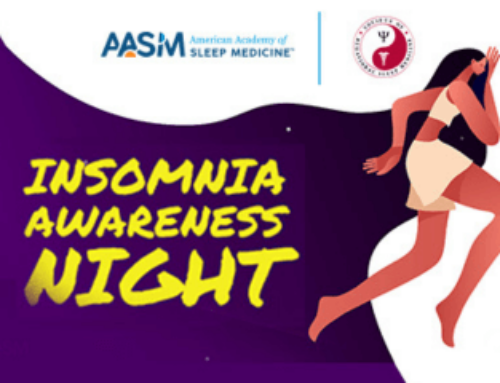DARIEN, IL – A new study shows that college students who are poor sleepers are much more likely to earn worse grades and withdraw from a course than healthy sleeping peers.
Results show that sleep timing and maintenance problems in college students are a strong predictor of academic problems even after controlling for other factors that contribute to academic success, such as clinical depression, feeling isolated, and diagnosis with a learning disability or chronic health issue. The study also found that sleep problems have about the same impact on grade point average (GPA) as binge drinking and marijuana use. Its negative impact on academic success is more pronounced for freshmen. Among first-year students, poor sleep— but not binge drinking, marijuana use or learning disabilities diagnosis—independently predicted dropping or withdrawing from a course. Results were adjusted for potentially confounding factors such as race, gender, work hours, chronic illness, and psychiatric problems such as anxiety.
“Well-rested students perform better academically and are healthier physically and psychologically,” said investigators Roxanne Prichard, PhD, associate professor of psychology and Monica Hartmann, professor of economics at the University of St. Thomas in St. Paul, Minnesota.
The research abstract was published recently in an online supplement of the journal Sleep and will be presented Tuesday, June 3, in Minneapolis, Minnesota, at SLEEP 2014, the 28th annual meeting of the Associated Professional Sleep Societies LLC.
Data from the Spring 2009 American College Health Association National College Health Assessment (NCHA) were analyzed to evaluate factors that predict undergraduate academic problems including dropping a course, earning a lower course grade and having a lower cumulative GPA. Responses from over 43,000 participants were included in the analysis.
According to Prichard, student health information about the importance of sleep is lacking on most university campuses.
“Sleep problems are not systematically addressed in the same way that substance abuse problems are,” she said. “For colleges and universities, addressing sleep problems early in a student’s academic career can have a major economic benefit through increased retention.”
For a copy of the abstract, “What is the Cost of Poor Sleep for College Students? Calculating the Contribution to Academic Failures Using a Large National Sample,” or to arrange an interview with Roxanne Prichard or an AASM spokesperson, please contact the AASM at media@aasm.org.
Established in 1975, the American Academy of Sleep Medicine (AASM) improves sleep health and promotes high quality patient centered care through advocacy, education, strategic research, and practice standards. With about 9,000 members, the AASM is the largest professional membership society for physicians, scientists and other health care providers dedicated to sleep medicine.




